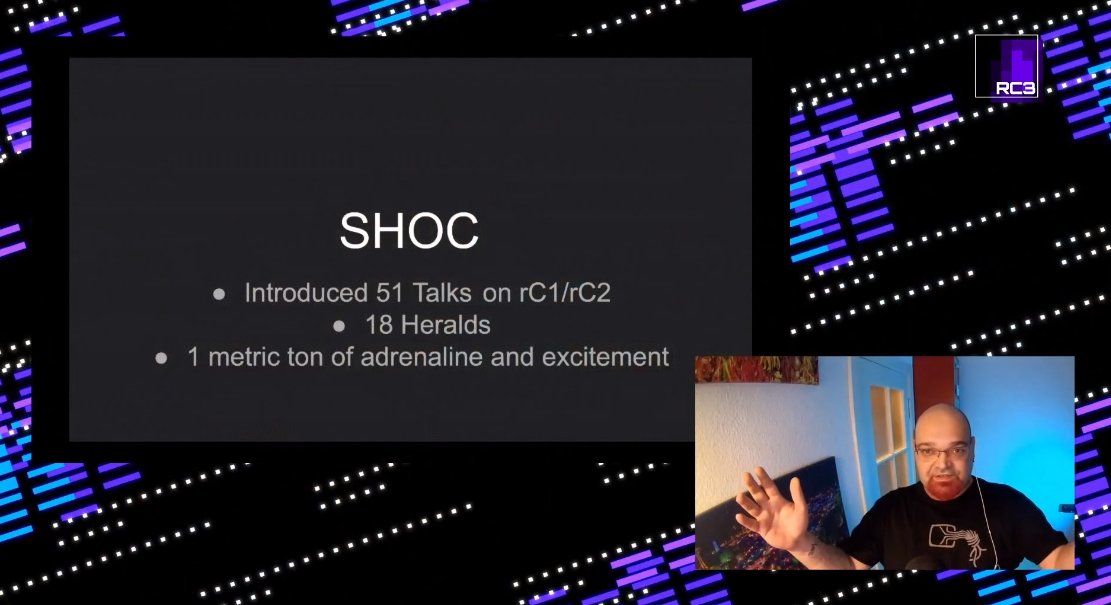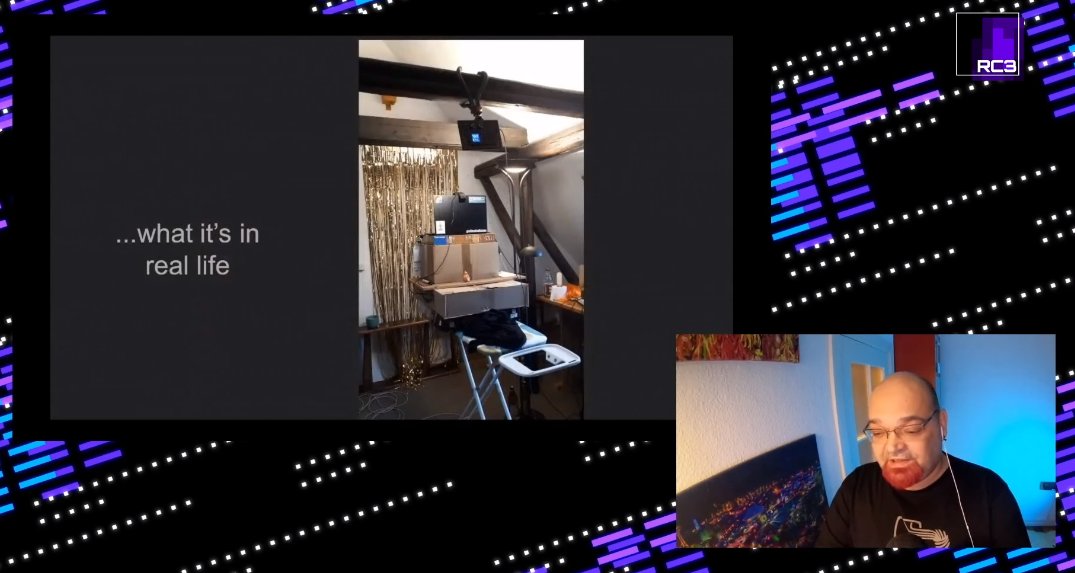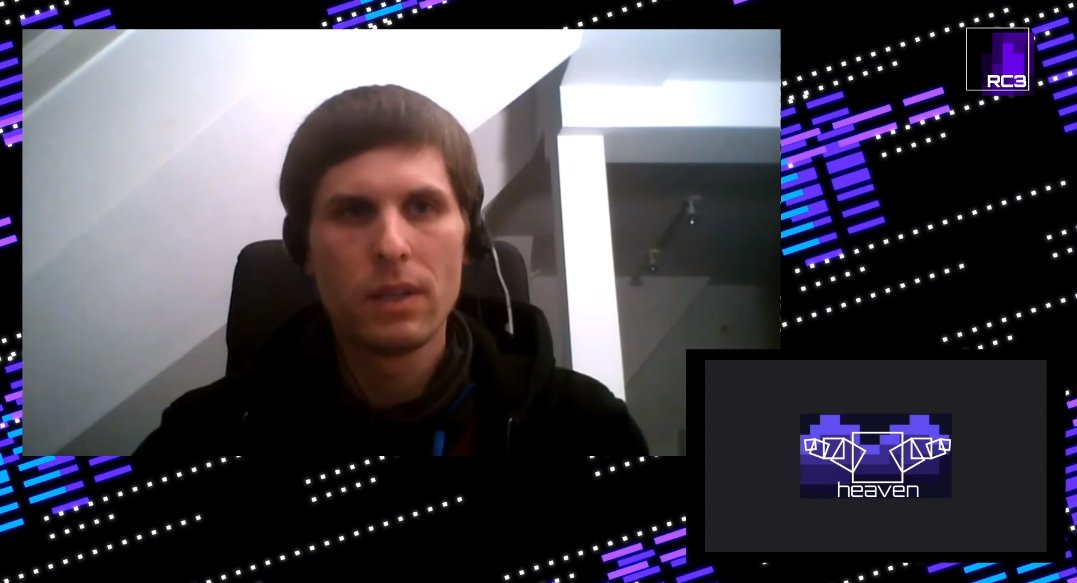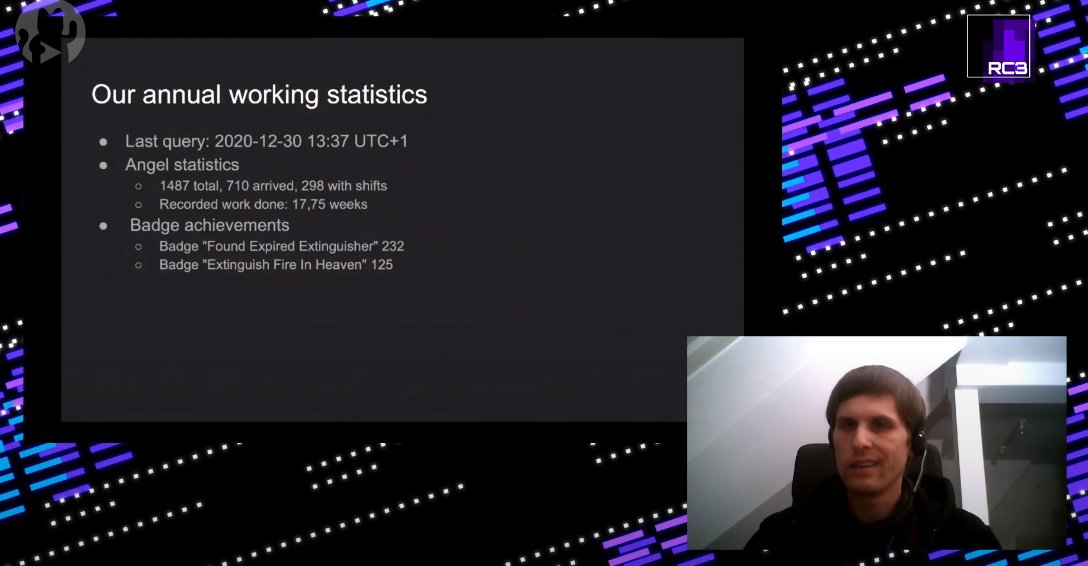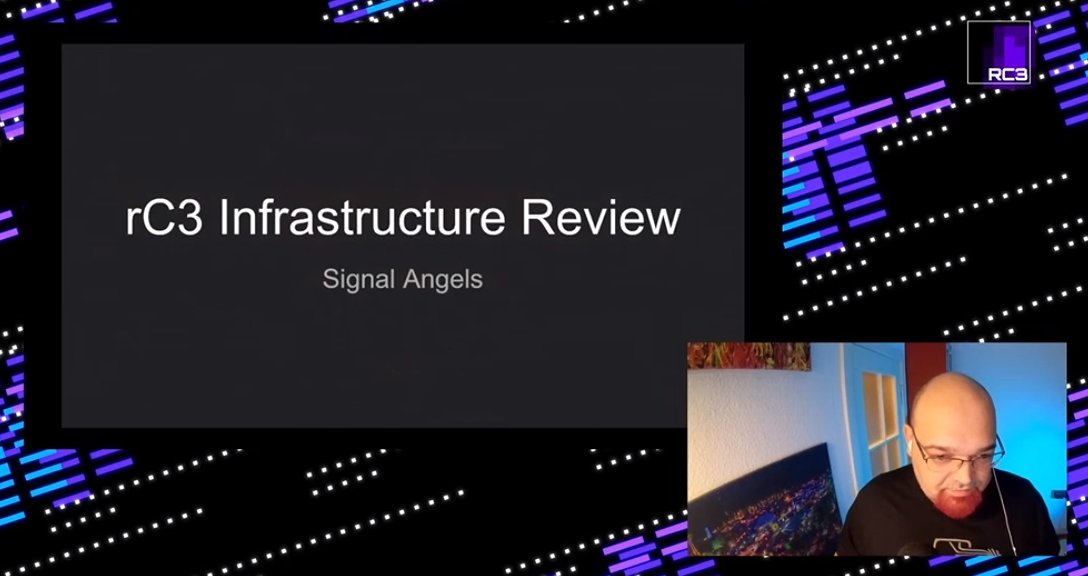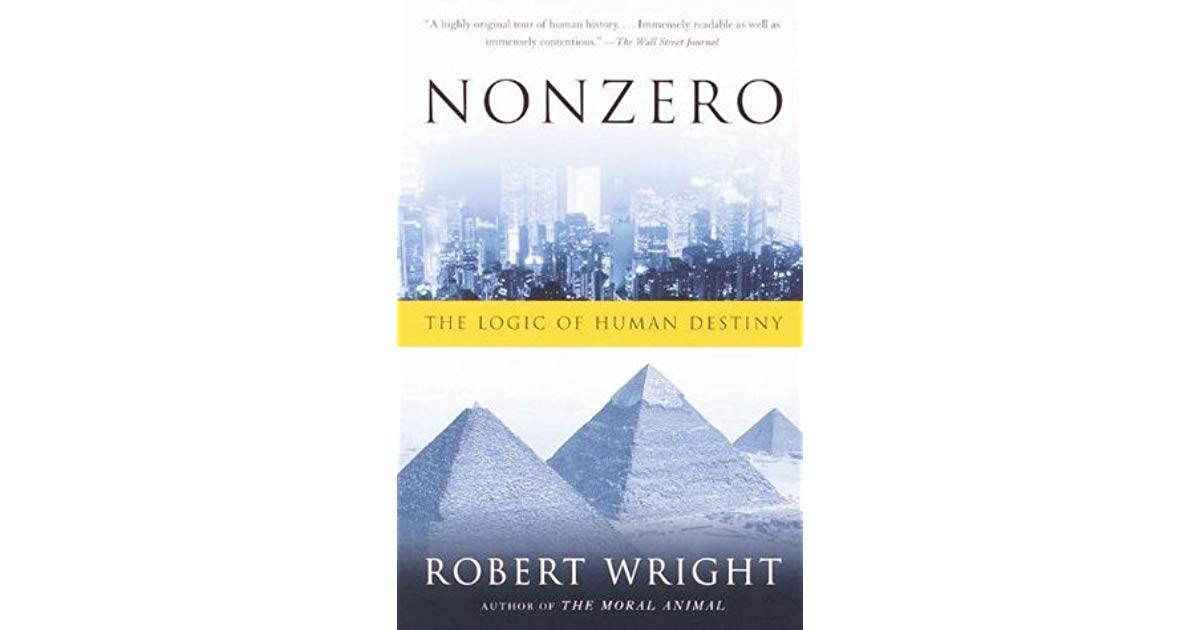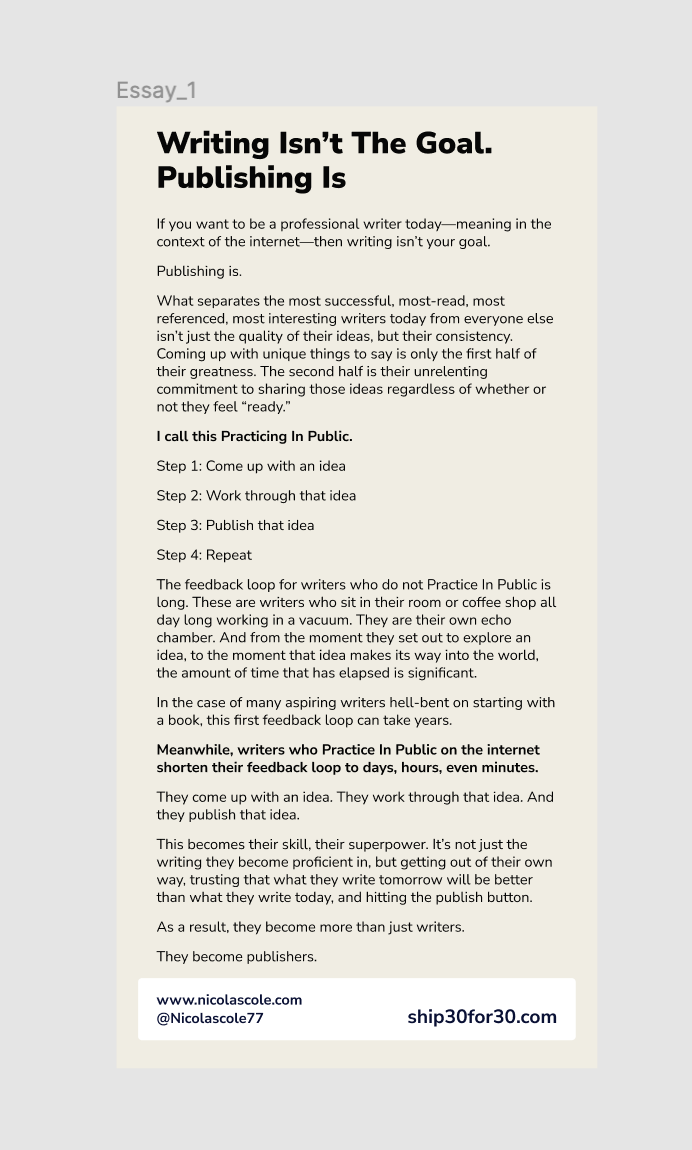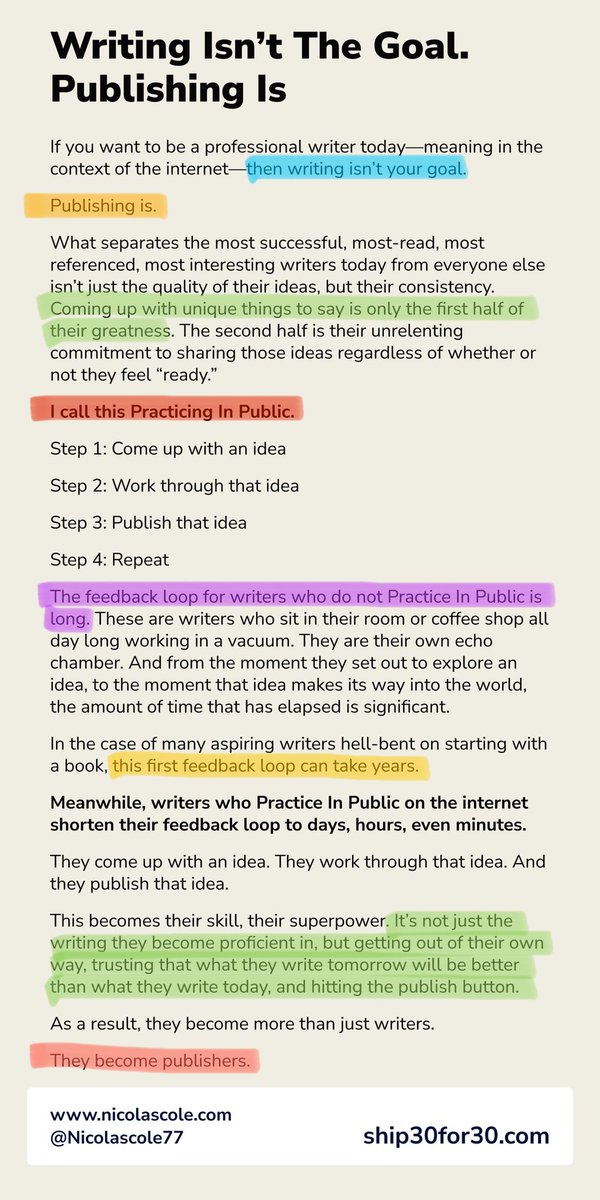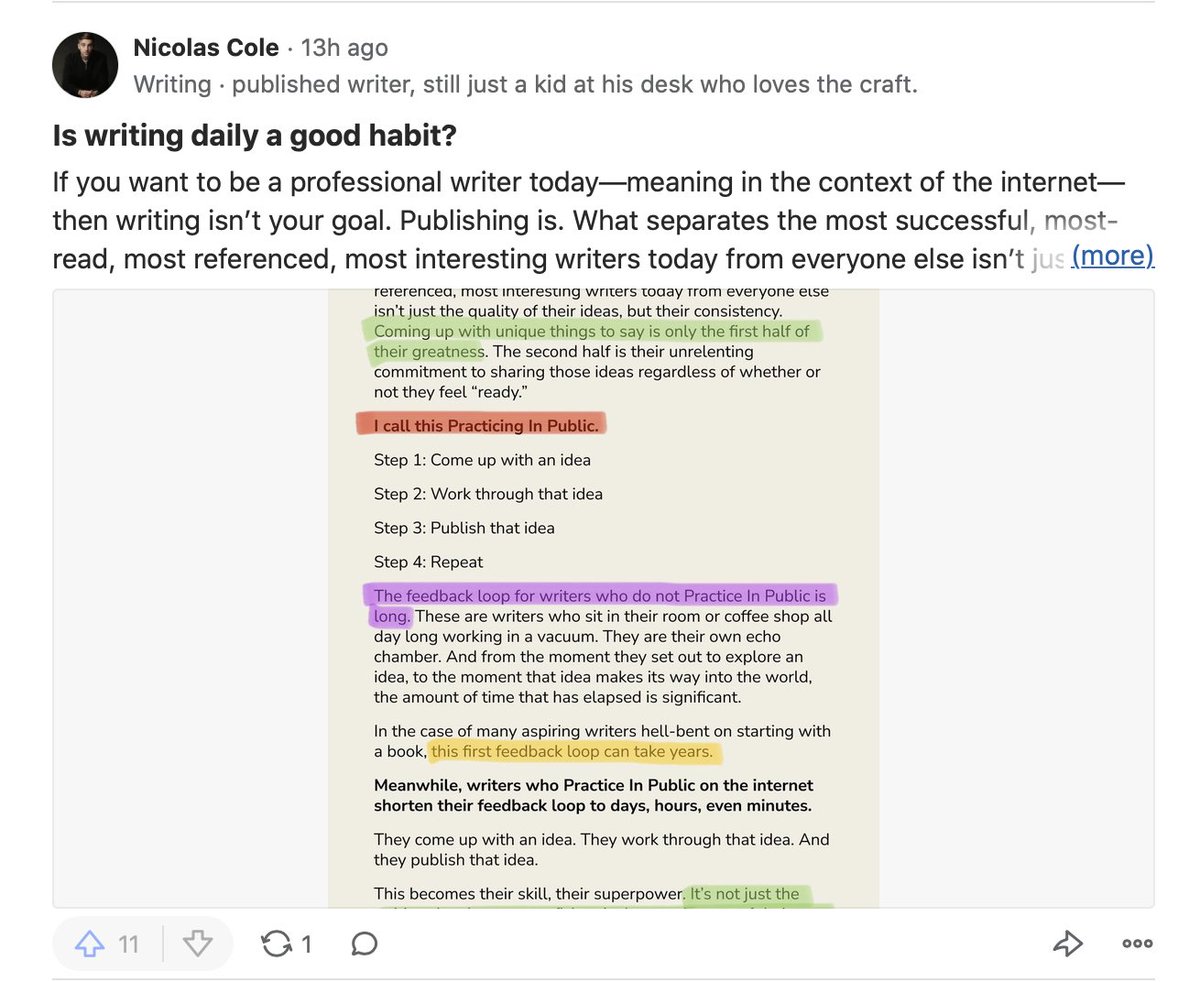I went to their website and applied.
Software engineering interview experiences don't have to be terrible.
Thread on my best software engineering interview experience.
👇🏼 (Thanks @PaulYacoubian for the idea)
I went to their website and applied.
They had an open field that said "Tell me something we should know about you".
I wrote about how I was a career switcher, had kids, went to school while working full time, etc.
They emailed me back a few days later and sent me a calendly link to schedule my first interview.
Letting the candidate choose a time for an interview is a small detail but is great for reducing candidate stress.
My interviewer mentioned and asked tons of questions about the free-response field I had filled out earlier.
1- Pair programming with one engineer. Pass/Fail to next round
2- Pair programming session with 3 engineers in one day. Pass/Fail to next round
3- Talks with executive folks
4 - Offer
All the people I paired with were friendly and low-ego.
I spoke with ~10 people each time I interviewed, and I could tell that each of them had read my application closely.
They showed a general interest in me!
Contrast this to other interviews I've had where they seemed almost bothered I was there
I never felt in the dark.
They biased towards responding quickly. The whole interview felt well thought out.
The interview closely approximated what a day in the life of working at the company would be like. No algorithm questions.
The talks with the executives went great too. They were transparent about the needs, what they were looking for, growth trajectory, etc.
The offer was for an internship in NYC. I live in Texas. Couldn't miss his birth.
I felt bad but they were very understanding. The recruiter also recently found out they were having a child and he sounded excited for us!
We chatted back and forth for a few weeks over email on babies, software development, etc.
It felt very human and it made a huge impression on me.
I emailed the recruiter and he started the process over for me again. It was mostly the same but just as pleasant.
More from Software
Kubernetes vs Serverless offerings
Why would you need Kubernetes when there are offerings like Vercel, Netlify, or AWS Lambda/Amplify that basically manage everything for you and offer even more?
Well, let's try to look at both approaches and draw our own conclusions!
🧵⏬
1️⃣ A quick look at Kubernetes
Kubernetes is a container orchestrator and thus needs containers to begin with. It's a paradigm shift to more traditional software development, where components are developed, and then deployed to bare metal machines or VMs.
There are additional steps now: Making sure your application is suited to be containerized (12-factor apps, I look at you: https://t.co/nuH4dmpUmf), containerizing the application, following some pretty well-proven standards, and then pushing the image to a registry.
After all that, you need to write specs which instruct Kubernetes what the desired state of your application is, and finally let Kubernetes do its work. It's certainly not a NoOps platform, as you'll still need people knowing what they do and how to handle Kubernetes.
⏬
2️⃣ A quick look at (some!) serverless offerings
The offer is pretty simple: You write the code, the platform handles everything else for you. It's basically leaning far to the NoOps side. There is not much to manage anymore.
Take your Next.js / Nuxt.js app, point the ...
Why would you need Kubernetes when there are offerings like Vercel, Netlify, or AWS Lambda/Amplify that basically manage everything for you and offer even more?
Well, let's try to look at both approaches and draw our own conclusions!
🧵⏬
1️⃣ A quick look at Kubernetes
Kubernetes is a container orchestrator and thus needs containers to begin with. It's a paradigm shift to more traditional software development, where components are developed, and then deployed to bare metal machines or VMs.
There are additional steps now: Making sure your application is suited to be containerized (12-factor apps, I look at you: https://t.co/nuH4dmpUmf), containerizing the application, following some pretty well-proven standards, and then pushing the image to a registry.
After all that, you need to write specs which instruct Kubernetes what the desired state of your application is, and finally let Kubernetes do its work. It's certainly not a NoOps platform, as you'll still need people knowing what they do and how to handle Kubernetes.
⏬
2️⃣ A quick look at (some!) serverless offerings
The offer is pretty simple: You write the code, the platform handles everything else for you. It's basically leaning far to the NoOps side. There is not much to manage anymore.
Take your Next.js / Nuxt.js app, point the ...
You May Also Like
Krugman is, of course, right about this. BUT, note that universities can do a lot to revitalize declining and rural regions.
See this thing that @lymanstoneky wrote:
And see this thing that I wrote:
And see this book that @JamesFallows wrote:
And see this other thing that I wrote:
One thing I've been noticing about responses to today's column is that many people still don't get how strong the forces behind regional divergence are, and how hard to reverse 1/ https://t.co/Ft2aH1NcQt
— Paul Krugman (@paulkrugman) November 20, 2018
See this thing that @lymanstoneky wrote:
And see this thing that I wrote:
And see this book that @JamesFallows wrote:
And see this other thing that I wrote:










